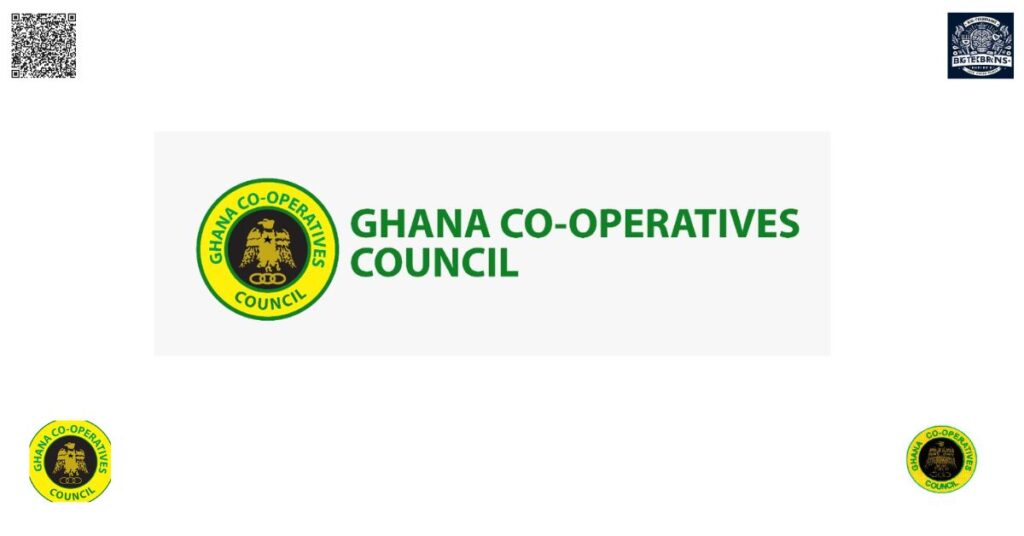Excerpt
The Ghana Co-operative Council (GCC) stands as the apex body overseeing cooperative movements across Ghana. Established in 1951, the GCC has been instrumental in promoting cooperative principles, fostering economic development, and enhancing the livelihoods of its members.
Historical Background
Initially registered as the Gold Coast Co-operative Federation in 1951, the organization was formed to assume the role of cooperative education from the Department of Co-operation. Following Ghana’s independence in 1957, it was renamed the “Alliance of Ghana Co-operatives.” However, in 1961, the alliance ceased operations when the then Convention People’s Party (CPP) government took over orthodox cooperatives. On January 22, 1973, the organization was re-registered as the Ghana Co-operatives Council (GCC), marking its current identity.
Constitutional Role and Mandate
The GCC’s primary mandate includes:
- Promoting the principles, ethics, and values of cooperatives in Ghana.
- Providing education and training to cooperative society leaders and members.
- Encouraging the development of cooperative enterprises and assisting in their organization through business development and advisory services, including marketing advisory services, capacity building, financial management training, skills development, and cooperative management.
- Collecting and disseminating information and statistics relevant to cooperatives and stakeholders.
- Representing Ghanaian cooperatives both nationally and internationally.
- Offering business development services to non-cooperative and private enterprises.
- Advocating for cooperative interests and facilitating the settlement of disputes.
Organizational Structure and Leadership
The GCC operates as a supra-apex body, representing various cooperative sectors in Ghana. Its leadership comprises a Board of Directors, including a Board Chairman, who provide strategic direction and oversight. The council collaborates with member organizations such as the Ghana Cocoa Cooperative Association and Marketing Ltd, the Credit Unions Association, and the Transport Cooperatives Association to drive impact and growth among members.
Mode of Appointment and Recruitment
Leadership positions within the GCC are typically filled through elections or appointments, adhering to democratic principles inherent in cooperative movements. Members of the Board of Directors are selected based on their experience, expertise, and commitment to cooperative values.
Collaborations and Partnerships
The GCC collaborates with various governmental and non-governmental organizations to promote cooperative development. Notably, it works closely with the Department of Co-operatives, the Ministry of Employment and Labour Relations, and international partners such as Agriterra to empower cooperatives and position them strategically within value chains.
Constitutional Reforms
Recognizing the need to modernize and strengthen the cooperative sector, efforts have been underway to review and update the Co-operative Societies Act of 1968 (NLCD 252). The proposed reforms aim to create an enabling environment for cooperatives to thrive, streamline management processes, establish a Central Financial Facility to support cooperatives facing liquidity challenges, and improve capacity building across the cooperative system. Additionally, the reforms propose the establishment of an Apex Body, fully owned and supported by cooperative societies, to enforce standards and good business practices across sectors.
Achievements
Over the years, the GCC has made significant strides, including:
- Establishing a development fund to support cooperative education, training, and distressed cooperatives, with contributions amounting to approximately GH₵60,000.
- Facilitating the signing of a Memorandum of Understanding (MOU) among key cooperative members to promote collaboration and sustainable development.
- Advocating for the formation of an apex body for cocoa farmers to enhance productivity and income levels.
- Promoting the cooperative model among cocoa farmers to strengthen their collective voice and resilience within Ghana’s cocoa value chain.
References
- https://ghanacooperativescouncil.com/company-overview/company-history/
- https://ghanacooperativescouncil.com/our-functions/
- https://www.theghanareport.com/ghana-co-operative-council-advocates-stronger-cocoa-cooperatives-at-2nd-agm/
- https://www.businessghana.com/site/news/Business/269170/New-Coorporative-Law-in-offing-…to-instill-modern-business-principles
- https://www.modernghana.com/news/1365944/ghana-co-operative-council-reports-growth-at.html
- https://www.gardjagh.org/ghana-co-operative-council-reports-growth-at-agm-signs-mou-to-promote-cooperation-among-cooperatives-for-sustainable-development-and-socioeconomic-cohesion/
- https://www.graphic.com.gh/news/general-news/employment-minister-advises-co-operative-societies-to-uphold-best-practices.html
- https://ghanacooperativescouncil.com/company-overview/
- https://www.melr.gov.gh/4/files/publications/5/2/101/8/9/30/4/15/8/11/ghana-co-operatives-council-%28gcc%29
- https://ebrary.ifpri.org/digital/api/collection/p15738coll2/id/3890/download

